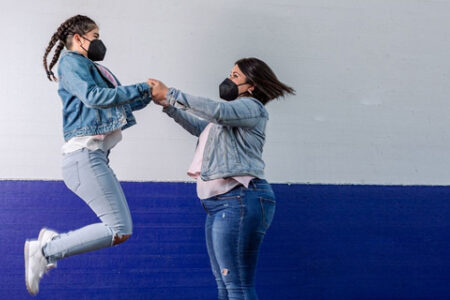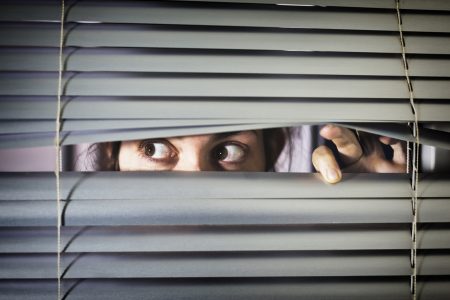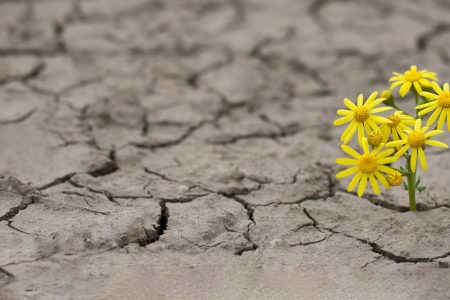Government, media and people: it’s time to shift our attention to the Corona placebo effect!
All of us have spent recent months tackling the crisis and steeling ourselves to deal within the struggle against Corona. Some people have called it a war; many have classed it as the most serious crisis we have ever had to face, and one that is likely to have disastrous and unpredictable effects.
But aren’t we creating this reality ourselves, by focussing only on the negative consequences of the crisis? The scientific world refers to as this phenomenon as the nocebo effect. By focussing only on the negatives, we reinforce our negative expectations, which makes it all the more likely that these will become reality. An example we are all familiar with is when the fear of an economic recession makes people spend less, which in turn makes the crisis worse.
Originally published in Dutch by Andrea Evers and Joost Derwig on www.lvmp.nl
Given that we know that positive expectations can lead to positive outcomes, isn’t it time we looked at this crisis differently? After all, experts have been telling us for some time that life as we knew it belongs firmly in the past and we have to accept our new post-Corona reality. What can we learn from fields such as psychotherapy, where a crisis can often mean a new start, letting go of old, no longer useful habits and starting anew with a fresh perspective? What opportunities does this new post-Corona reality hold? Or even better, where can we shift our attention so as to create for ourselves a possibly happier, more equal and more inclusive society? It’s time for the Corona placebo effect, for thinking about the positive expectations for the future and concentrating on those things we have some control over.
- Focus on what’s really important in life
A crisis is a chance for self-reflection, a slowing down of life, taking stock and showing respect for one another. In a society that is always in motion and that seems to be becoming ever more hyperactive, where silence and peace are a rare phenomenon, suddenly, from one day to the next, we were confronted with silent and almost abandoned cities, where every form of daily distraction was gone. Thrown back on ourselves and forced to make our own entertainment at home, for many of us this period has been an opportunity to reflect on where we stand in life, and what’s important to us. Let’s all create these moments more often, so that we can pause and discover what really matters, what makes the difference in our lives and how we can contribute to making that difference. - Concentrate on what we ourselves can do to stay as healthy as possible
A physical crisis like Corona confronts us with our physical vulnerability. Suddenly we had to cope with this virus; we had no idea what course it would take, but it was the cause of serious illness and death for a growing number of people, and science was not able to provide a definitive answer. This very confrontation with death and the idea that we were all at risk brought our health into much sharper focus. At the same time, it was also clear that our own behaviour could play a key role in containing the problem, by keeping an adequate distance, showing respect for other people and having as healthy a lifestyle as we can. The crisis is making us all face up not only to our own physical vulnerability but also to our responsibility to deal with it as best we can. The acute threat of the virus is a window of opportunity and it has given many people the impetus to embrace new intentions, living more healthily being just one of them. - Enjoy the small things in life
The Corona measures made the world around us very small. As a result of the lack of distractions and entertainment and the strong one-sided focus on digital resources, we have gone outdoors in our masses to enjoy nature or our own gardens and neighbourhoods. We have spent more time at home with our family or partner and had more contact with our neighbours. Not always dashing off somewhere, and shopping more locally have given us more time for talking to people around us and getting to know our local area. Committed globetrotters who used to think that travel to exotic places, trendy city life or chic restaurants were prerequisites for a happy life have now discovered the pleasure of doing sports in nature and walking in the open air, and the charm of shopping just around the corner. The Corona crisis has brought many of us into closer contact with our local area and the physical environment around our homes; we’re spending time in nature, at our allotment or cooking for and with our family. We’re all learning anew to appreciate that happiness can be found in the small things in life. - Working towards community spirit and cooperation
The measures to deal with the Corona crisis awakened in many people a new sense of community spirit and cooperation. In particular at the start of the quarantine measures, it was noticeable that people were more polite to one another, cars were driven more carefully and people showed more consideration and respect for each other. As a result of the acute changes in nursing and care homes, we feel even more closely involved in the care, wellbeing and health of our - possibly vulnerable – loved ones (such as parents or parents-in-law). We are also phoning one another more often, not just friends in our private lives but also people from work, something that a few months ago would have been unthinkable on this scale. And maybe the most positive development: this connectedness is visible on a global scale. Corona makes us more aware of how dependent we all are on one another, wherever we are in the world. A solution in one country has limited benefit if we can’t also apply that same solution in other countries. This in itself offers opportunities for a new sense of global solidarity and social engagement.
But why should we turn our attention to these issues at this particular time? Because by making full use of the Corona placebo effect, we have more chance of helping to contain the crisis. And the time for that is now! Experts are predicting a new outbreak, and continuing to focus one-sidedly on the negative aspects of the crisis can have a hugely adverse effect. We are aware of the consequences of the nocebo effect, namely that a long-term focus on the negative consequences of any situation can have an enormous influence on our mental state, as well as – and this is even more important – on our physical reactions and ultimately on our health and the illnesses we may succumb to. Government, media and citizens: Watch out for the Nocebo Corona Effect
So, it’s not a luxury but bitter necessity to make good use of the Corona placebo effect. We can do that by encouraging people to live more healthily, paying attention to innovative economic plans, developing new social initiatives and adapting as best we can to the new reality. It’s the people who see opportunities rather than only threats that will be most successful at adapting to this new reality.
Government, media and people: it’s time to shift our attention to the Corona placebo effect!
Co-author Joost Derwig is chair of the Dutch Association of Medical Psychologists [LVMP] and the Psychologists in General and Academic Hospitals [PAZ] section of the Dutch Association of Psychologists [NIP].





